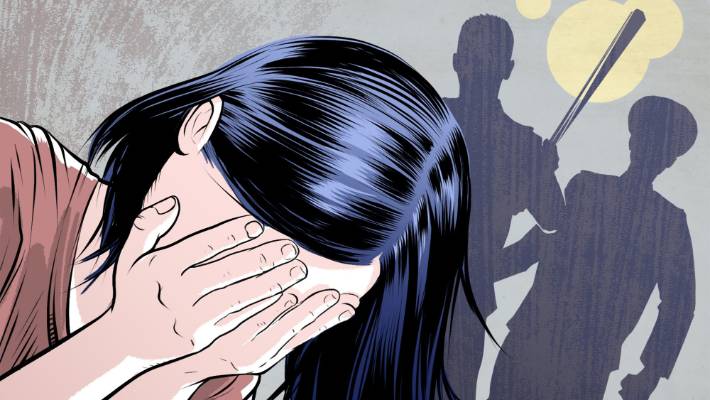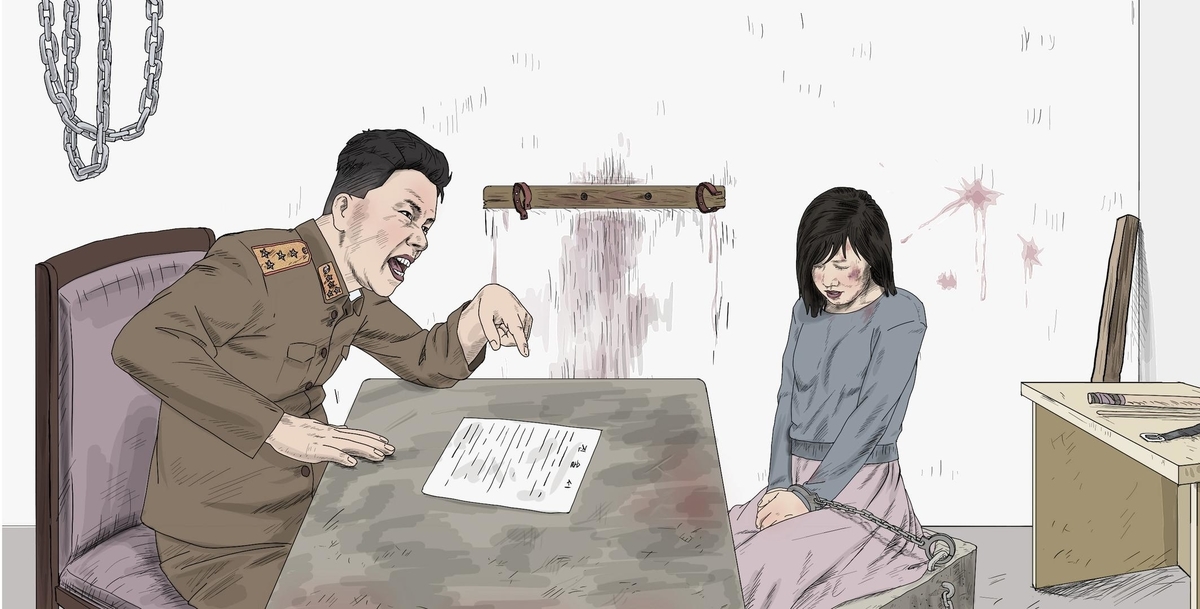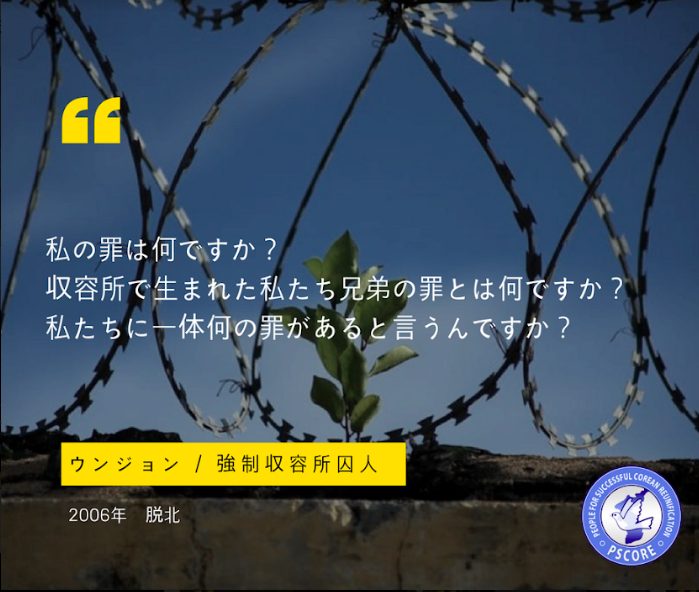北朝鮮の恐ろしい児童虐待-PSCORE [ENG]
こんにちは!今回は、北朝鮮で蔓延している児童虐待についてお伝えしていきます。
北朝鮮には児童虐待という概念がないため、暴力の慣習が浸透し、北朝鮮の子供たちとその発達に長期的な悪影響を及ぼしています。
Hello! This time we would like to tell you about one of North Korea's ongoing human rights violations, child abuse.
Since there is no concept of child abuse in North Korea, a culture of violence permeates which has long-lasting effects on North Korean children and their development.

肉体的虐待
(Physical Abuse)
PSCOREのインタビューの回答者の半数は児童虐待を経験しており、85%は肉体的虐待を経験しています。
家庭での肉体的虐待
脱北者たちは、親が子どもに対して身体的に暴力を振るうことは一般的に受け入れられている習慣であると報告しています。
調査によると、社会的地位の低い回答者の52%が身体的虐待を経験しましたが、社会的地位の高い調査回答者の身体的虐待の経験割合は25%であることがわかりました。
また、暴力対象には性別によって違いがあるようです。 男性は回答者の47%、女性は回答者の40%が身体的虐待を経験したことを証明しています。
学校での肉体的虐待
肉体的暴力は、個人の家と同じように学校でも受け入れられています。 体罰は学生の日常生活の一部になっているのです。
Half of the respondents from PSCORE’s interviews have experienced child abuse and 85% of them have experienced physical abuse.
Physical Abuse at Home
In the private sphere, physical violence is commonplace in North Korea. Several defectors reported that it is a commonly accepted practice for parents to be physically violent with their children.
The testimonies indicate that the degree of violence inflicted upon children vary between parents. Surveys show that 52% of low social status participants experienced physical abuse, whereas only 25% of high social status participants have experienced such abuse.
It also seems that there is a differentiation in the use of violence based on gender. 47% of the male respondents attest to have experienced physical abuse compared to only 40% of female respondents.
Physical Abuse at Schools
Physical violence is accepted in school in the same way that it is in the private home. Corporal punishment seems to be part of the daily life of students.

公共施設での肉体的虐待
調査委員会は、虐待加害者の大多数が責任を問われていないことを報告しています。ある一人の被害者の父親が語る恐ろしい話をご紹介します。
「2011年8月、国家安全保障局(SSD)は韓国映画を見たとして彼の息子を逮捕しました。 彼は拘留中に拷問を受けました。 「私の息子の左足首は粉々に砕かれ、彼の顔は打撲傷を負い、ひどく傷を負いました。」 SSDが彼を解放するために、両親はかなりの賄賂を払わなければなりませんでした。 残念ながら、その息子は拷問が原因で脳出血を引き起こし数日後に死亡してしまいました。」
Physical Abuse in State facilities
The commission found that the majority of perpetrators are not held accountable. One terrifying story was told by a father of a victim. In August 2011, agents of the State Security Department arrested his son for watching South Korean movies. He was tortured while held in detention. “His left ankle was shattered and his face was bruised and grossly disfigured.” The parents had to give substantial bribes so that the SSD would release him. Unfortunately the boy died a few days after as a result of the torture that he endured, which caused a brain hemorrhage.

「拷問ではあなたの手は背中の後ろで手錠をかけられます。 そして、あなたは吊るし上げられ、立ったり座ったりすることができないようにされるのです。」
-チョン・クァンイル
“Your hands are handcuffed behind your back. And then they hang you so you would not be able to stand or sit.”– Jeong Kwang-Il
政治犯収容所
国家は公式には存在しないこれらの収容所に強制的に国民を収容させるという罪を犯しています。子供を含む家族全員がそこに送られます。
政治的、イデオロギー的、または経済的な「敵の部類」の人々の粛清は、元の不正行為者の第3世代までの子孫まで及びます。
ある女性は、彼女が学校からの帰りに逮捕されたときはたった13歳だったそうです。 彼女の家族全員も理由が明かされることなく逮捕されました。 逮捕の理由について尋ねたり、それについて他の囚人と話すなどしようものなら処刑されてしまうのです。
別の女性は政治犯収容所に28年間滞在し、釈放されるまで逮捕の理由を知りませんでした。 後に、朝鮮戦争中に祖父が大韓民国に逃亡したため、家族全員が逮捕されたことが判明したのです。
Political prison camps
The state is guilty of enforced disappearances into these camps that officially do not exist. Entire families are sent there including children.
Purges of political, ideological or economical “class of enemies” extend to the descendants up to the third generation of original wrongdoer.
One witness said she was only 13 years old when she was arrested on her way back from school. Her entire family was also arrested without the reason being divulged. Worse, they were told if they should enquire about the reason or talk to other inmates about it, they would be executed.
The witness stayed 28 years in the political prison and she never knew why until her release. Then, she found out that because her grandfather had fled to the Republic of Korea during the Korean War, her entire family was arrested.

''What is my sin? What is the sin of our brothers born in the camp? What sins do we have?''-Kim Eun Jung (Concentration camp prisoner, escaped in 2006)
孤児院
国連情報委員会(COI)が収集した脱北者の証言によると、人道支援機関はこれらの施設にアクセスすることはできません。
ある少女は捕まったとき、彼女は自分の意志に反して孤児院に送られました。 到着すると、彼女は椅子の上に立たされ革のベルトで打たれたのです。
食糧不足に加えて、子供たちは一日中座って、週に一度だけ外に出てトイレをすることができました。
子供たちは、学校の時間中に畑で働くことで労働搾取されています。脱北者は、子供たちが作物を収穫し、トラックに積み込み、過酷な労働に従事しなければならないと証言しています。 北朝鮮の子供たちは、強制労働の任務を遂行できなかった場合、絶えず殴打されるのです。
Orphanages
Humanitarian agencies do not have access to these facilities (UN Committee of Information (COI) collected North Korean defector testimonies)
A girl was caught and sent to a facility for street children against her will. As she arrived she was beaten with a leather belt as she was made stand on a chair.
In addition to the lack of food, the children were to sit all day long and go outside only once a week to empty the toilets.
Children are exploited for labor by working in the fields during school hours. North Korean defector testimonies reported children having to harvest crops, loading trucks, and participating in strenuous labor. The North Korean children were constantly beaten if they were unable to complete the forced labor tasks.
次回は性的虐待についてお伝えします。次回もどうぞお楽しみに!
私たちのウェブサイトはこちらから▶️http://pscore.org/home-ja/
お読みいただきありがとうございました!
There will be Child Abuse part 2 uploaded very soon, so please look forward to it!
Visit our website as well! ▶️http://pscore.org/home/
Thank you for reading! :)